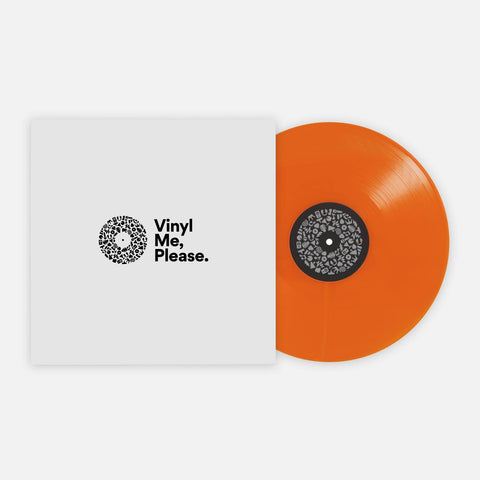Lily Allen’s ‘No Shame’ Fights The Demons
The U.K. Singer’s Comeback Album Is Can’t-Miss
Every week, we tell you about an album we think you need to spend time with. This week's album is Shame, the fourth LP from Lily Allen.
Lily Allen draws attention and likes it. “People always say I do things for attention. I’m a pop star. I like attention,” she said recently. Over the past several years, however, this attention has bounced between heavily advocating for political change to a terrifying stalker situation to a publicised identity crisis. It also led to making music with a lost sense of direction when Allen was in a vulnerable state, leading to a rough rollout with her 2014 album Sheezus. Four years later, after a flurry of controversies and personal catastrophes, Allen has redeemed herself with a searing, personal testament that she is still the sardonic pop queen we know and love. This new album cycle finds her enlightened and grounded with sullen moments of introspection through visceral storytelling.
The 32-year-old has always been skilled in pointing out the polemic and making slithering commentary on cracks in pop culture, but her fourth album No Shame reveals and ultimately celebrates her deepest personal faults. All three of her previous albums (Alright, Still, It’s Not Me, It’s You and Sheezus) have dealt with critiquing the outside world, using her sharp observations for critical jabs. Whereas Sheezus donned a sound and image like an overworked, oversaturated Instagram post and used greed and garishness as self-medication, No Shame is about exposing that self-medication and purging it.
The 14-track album is brilliantly controlled and grounded in subtle smirks with a cast of pop producing royalty including Mark Ronson, Fryars, Bloodpop and Vampire Weekend’s Ezra Koenig. With a full house at hand, Allen maximizes her refined skill for offering a blow to the chest with a cotton candy-colored bullet and heart-shaped puff of smoke. She takes us on a reality roller coaster, letting us witness tumultuous emotional lows and redeeming romantic highs. The album’s production is light and buoyant — at times only a bare guitar strum to keep rhythm — highlighting the brutal honesty of the lyrics. Her honeyed vocals are deceivingly sugarly: Everything sounds chipper and euphonic among glittering piano riffs and plump reggaeton rhythms, but looking closely there is still the ugly reality that most pop music runs away from. By its end, No Shame marries the fought demons of alcoholism, divorce, mental breakdowns and sexism with lithe melodies and production as bright as Allen’s current hair color.
Not even a minute into the album’s opener “Come On Then,” Allen is already shredding herself to a vulnerable pulp. A titillating trap beat carries her emotional baggage, while her voice is veiled in an iridescent Auto-Tune. “I’m a bad mother / I’m a bad wife / You saw it on the socials / You read it online,” she sings amongst a shimmering U.K. garage backbeat. In a tone that says, ‘I’ve heard it all before,’ she later shrugs off these expectations, imposed labels and demeaning persecutors. As hard as they may try, seething headlines or Instagram comments won’t get the better of her. It’s the perfect introduction for an album that prompts us to listen further for her truth.
In interviews, Allen has talked extensively about her quest for validation, which includes from herself as well as others. No Shame is not only Allen accepting herself and her story for what it is, but also exposing the instant numbness that self-medication grants. As a mother of two who has dealt with PTSD from a stillborn birth and then postpartum depression, she was still understood as a product not a human being. “Everything to Feel Something” dives into every form of self-medication Allen has relied on. “I don’t know why I do it to myself / Giving all my worth to someone else.” She heavily details the universal draw of self-destructive behavior. She seems to be finding stability in embracing her shaky past. She’s building the infrastructure for her future by coming to terms with the past. She’s done every artificial form of validation, this album being the first step to self-validation and acceptance.
The most poignant and successful tracks deal with paralyzing family matters. “Family Man” is a piano ballad with anthemic flourishes, about naively convincing oneself that love lasts forever. It delivers chills and collects tears, bearing the skeletons and blind hope of Allen’s recently ended marriage. What follows is the equally gentle, yet gutting “Apples.” Her voice is close, whispering in our ears about the disintegration of her marriage as guitar plucks skip around behind her. “We were both depressed / Towards the end we were not even having sex / I felt like I was only good for writing cheques.” Later, she ends up relating the most to the last people she thought: her parents. “I guess the apple doesn’t far from the tree.”
No Shame should be lauded for emphasizing the humanity and trauma people have to endure, even in the spotlight. It emphasizes that as humans we are constantly messing up, and we are constantly changing. It appreciates our malleability; it’s about taking responsibility; it’s about looking inward, rather than shaming outwardly. When people are presented as products in an industry — which in a way we all are with social media — not only is there pressure to sell but also pressure to fit exactly what the social expectations are. From young woman to young mother, the messed up marketing game is something Allen has had to deal with, being rejected when her evolving identity and new roles don’t fill the pop archetype. Allen's personal catastrophes are a foil to the current state of humanity, asserting that lessons in intimacy are a form of self-preservation, being that they are the only problems in her control.
Margaret Farrell is a New York-based writer who has written for Stereogum, Pitchfork, and Flood Magazine. She treats hair color like a mood ring and is, sadly, of no relation to Colin.
Related Articles
Join the Club!
Join Now, Starting at $36Pages















